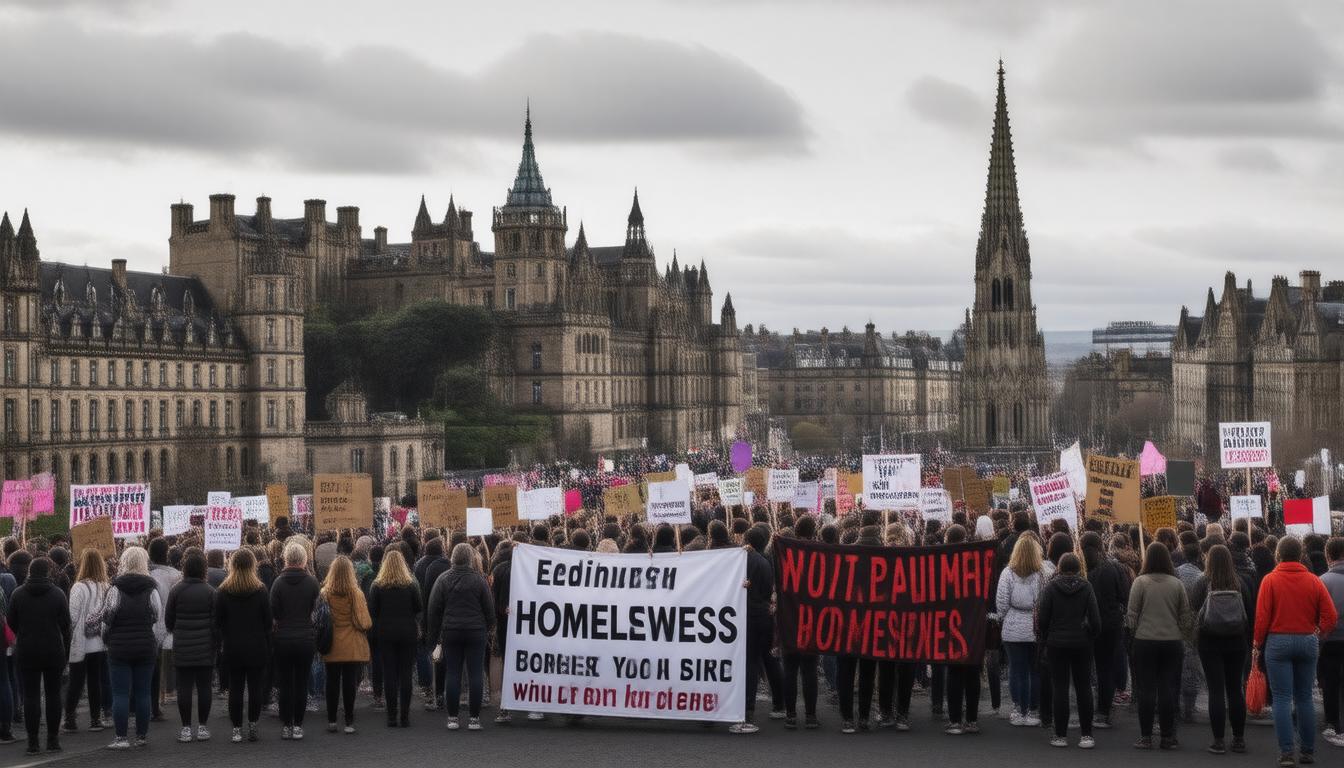In recent weeks, the City of Edinburgh Council has faced severe criticism from Shelter Scotland, a prominent charity advocating for homeless individuals. The charity’s demands for the removal of the council’s leadership stem from significant disagreements over homelessness policies, particularly the controversial use of unlicensed houses in multiple occupation (HMOs). This move has been regarded as both a potential violation of human rights and a signal of neglect towards the most vulnerable members of society.
The context of this conflict lies within Edinburgh’s ongoing homelessness crisis, which has seen the city recording the second-highest rates of homelessness in Scotland, with approximately 5,250 households currently relying on temporary accommodation. Shelter Scotland argues that the council’s recent proposals, including the suspension of essential housing rights until March 2028, further exacerbates the already dire situation, highlighting the need for legal adherence and human rights protection in housing policies.
Key Takeaways
- Shelter Scotland is demanding the removal of Edinburgh Council’s leadership over controversial homelessness policies.
- The council’s proposal to use unlicensed HMOs is viewed by Shelter Scotland as a violation of the human rights of homeless individuals.
- With Edinburgh facing high homelessness rates, the council argues that their measures are necessary to manage the ongoing crisis.
Background on Edinburgh’s Homelessness Crisis
The ongoing homelessness crisis in Edinburgh has intensified as Shelter Scotland has publicly called for the dismissal of key leadership within the City of Edinburgh Council, igniting significant controversy over the council’s homelessness policies. The charity has raised alarm over the council’s reported use of unlicensed houses in multiple occupation (HMOs), a practice that is not only illegal but also deemed to infringe upon the human rights of vulnerable populations (Shelter Scotland, 2024). This call to action follows a pivotal housing committee meeting on December 3, where members voted to suspend certain housing rights until March 2028 and to seek a legal exemption to deploy unlicensed HMOs to accommodate the rising number of homeless families. Shelter Scotland firmly contends that these decisions could undermine the essential rights of individuals facing homelessness, asserting that such policies effectively legitimise substandard living conditions, placing families in circumstances that violate their fundamental rights (Public Finance, 2024).
In stark contrast, the City of Edinburgh Council argues that the controversial measures are a necessary response to the city’s escalating homelessness crisis, which stands as one of the most severe in Scotland, with approximately 5,250 households currently residing in temporary accommodations, many of which are unsuitable for long-term habitation. Council representatives have stressed that no definitive changes regarding housing legislation or individual rights have been finalised during the committee’s deliberations (The Scotsman, 2024). As this situation unfolds, Shelter Scotland’s director has underscored the severity of the crisis, describing the council’s current approach as a profound breach of fundamental human rights obligations.
Shelter Scotland’s Response and Demands for Change
In light of these developments, Shelter Scotland’s advocacy for immediate change underscores a growing urgency for reform in homelessness legislation across the nation. The organisation argues that the council’s actions not only discredit the existing legal frameworks designed to protect vulnerable individuals but also reflect a broader need for systemic change within local governance structures. Meanwhile, the City of Edinburgh Council continues to defend its policy decisions, suggesting that the temporary suspension of certain housing rights is necessary to address an unprecedented volume of homelessness, which affects roughly 5,250 families in the area (Housing Scotland, 2024). The contrasting viewpoints illustrate a critical juncture for Edinburgh’s housing policy, heavily scrutinized by local charities and advocacy groups. Such discourse is expected to ignite further debate surrounding the adequacy of current homeless support systems and the moral implications of enforcing housing policies that may inadvertently exacerbate the struggles of the city’s most vulnerable residents.





